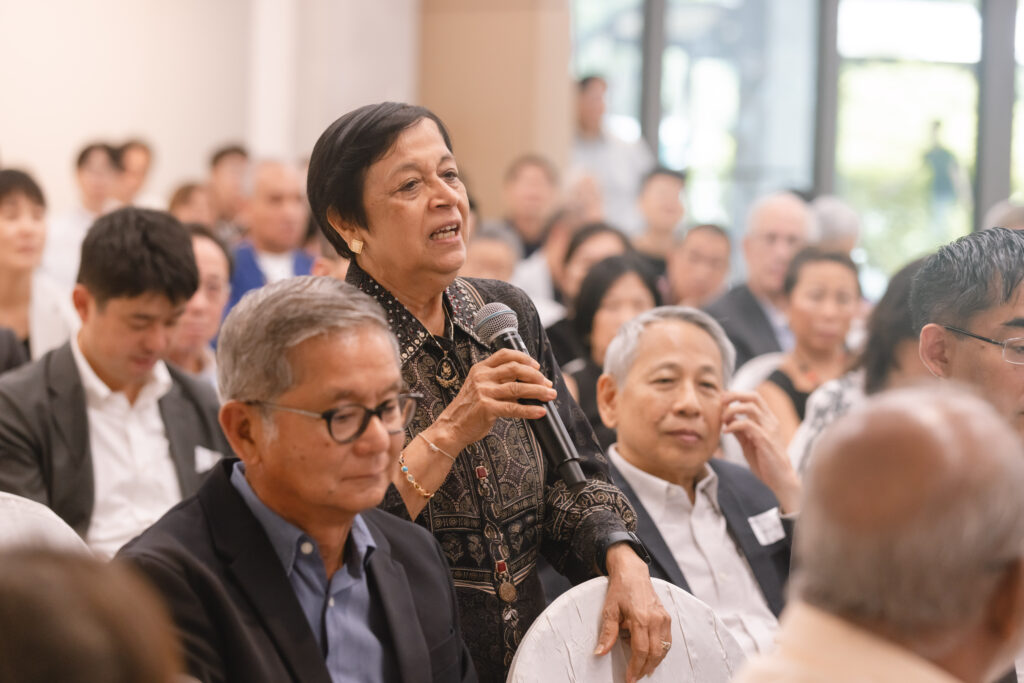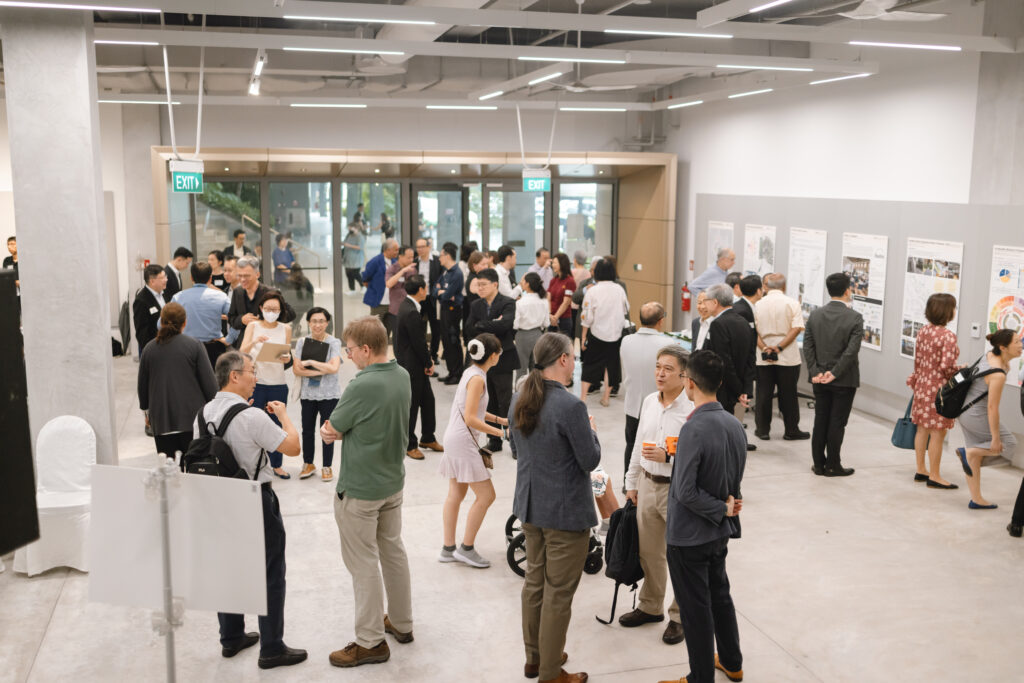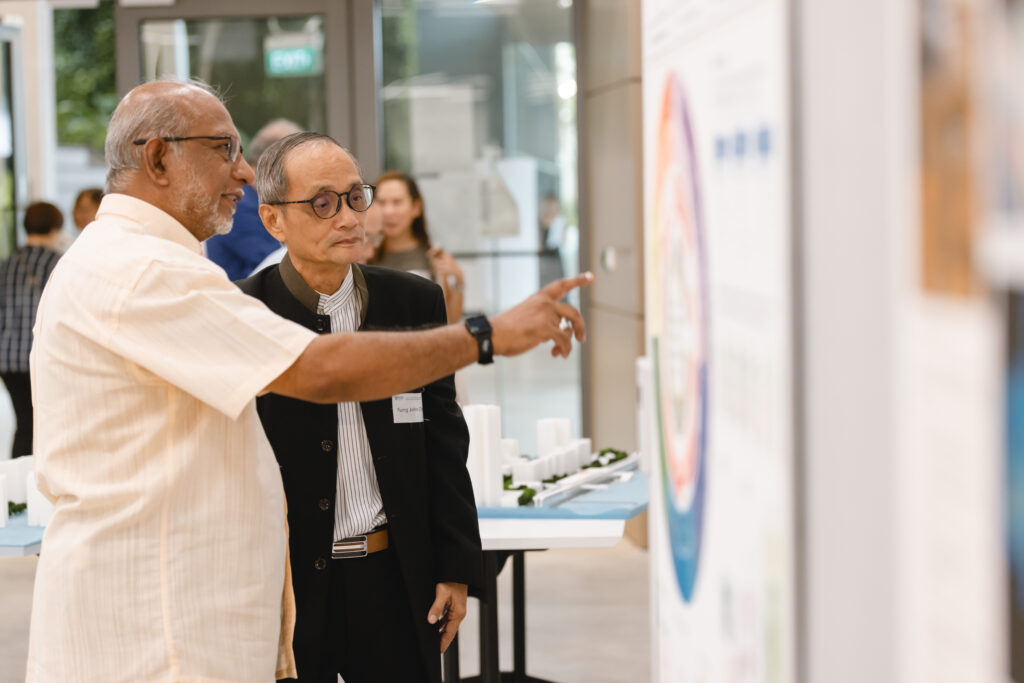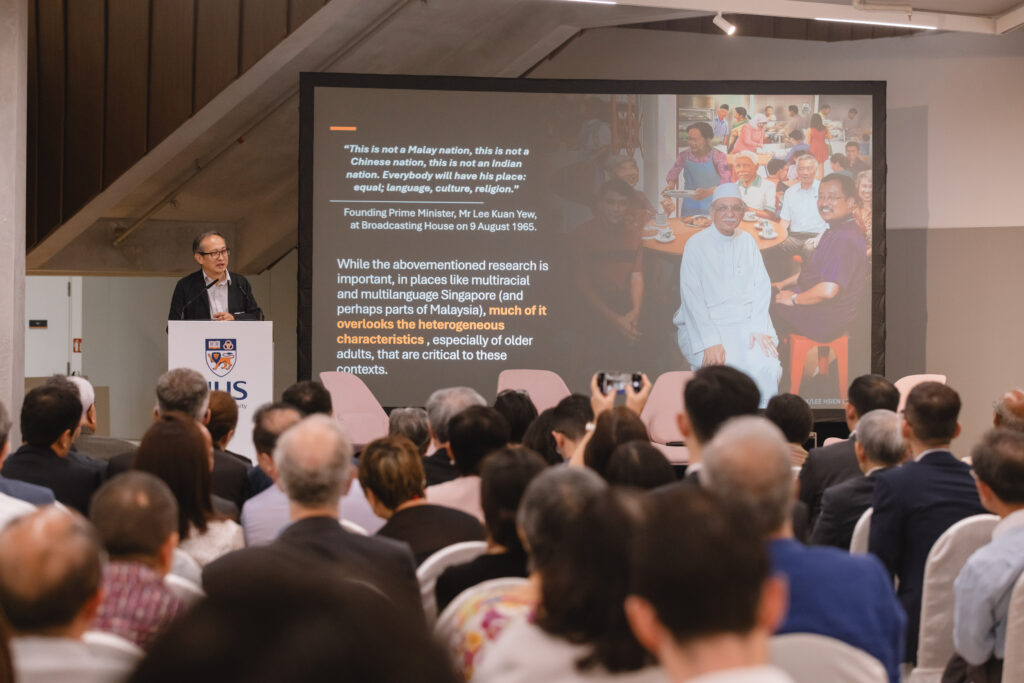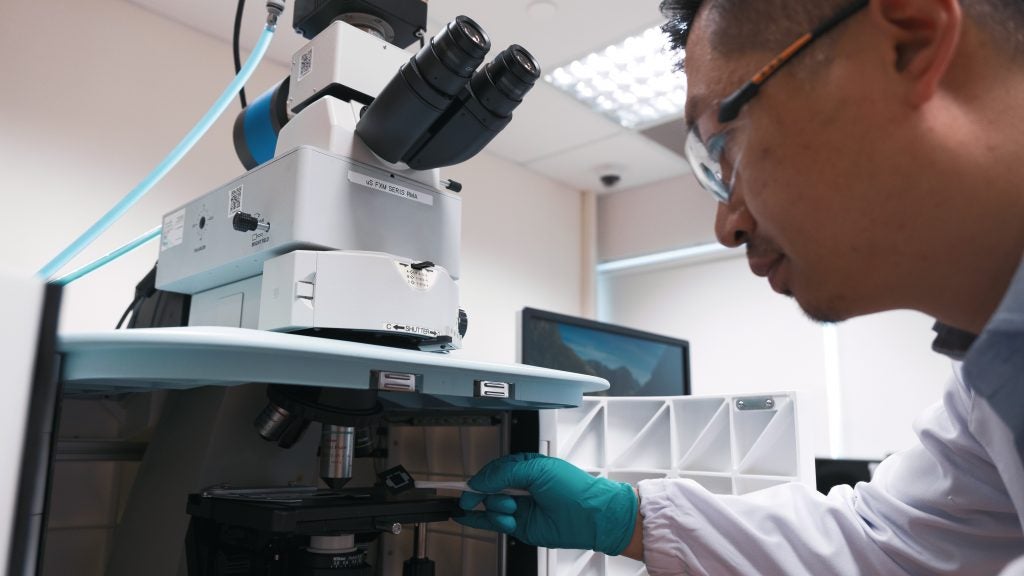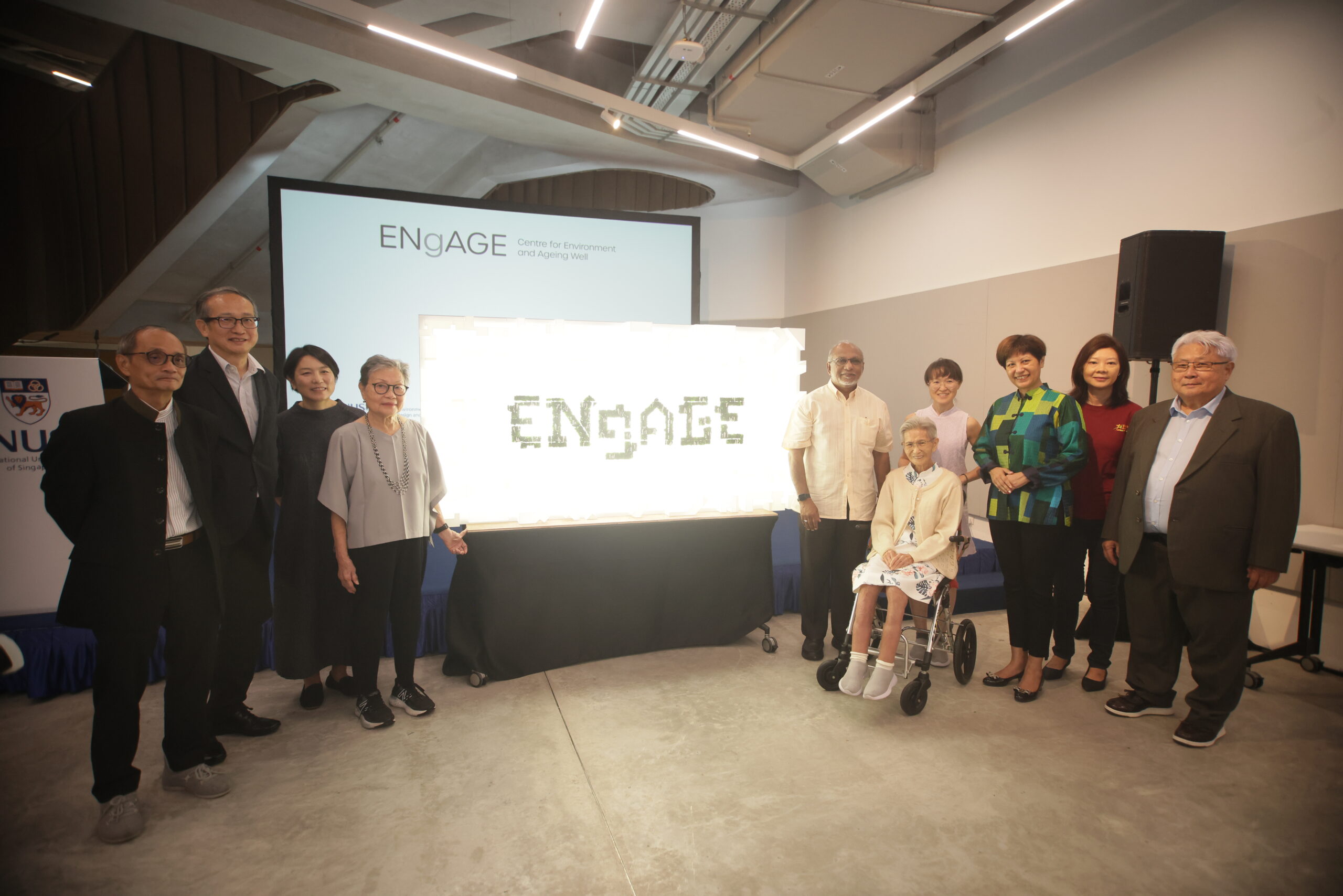
The launch of the Centre for Environment and Ageing Well (ENgAGE) marked a significant step in the commitment to improving the quality of life and holistic well-being across all age groups, especially in the face of rapid demographic shifts and climate change. With one in four Singaporeans projected to be 65 and older by 2030, Singapore is one of the fastest ageing populations in the world.
ENgAGE was officially inaugurated on 27 August 2024 by Ms Indranee Rajah, Minister in the Prime Minister’s Office and Second Minister for Finance and National Development. She was also joined by community members actively involved in ENgAGE’s projects. In her address, Ms Indranee Rajah stated that “The work that will be undertaken here is not just important – it is imperative for the future well-being of our society. So let us all support and contribute to this endeavour to build a better living environment and quality of life for our seniors.”
Dedicated to transforming how society views and supports ageing, ENgAGE is ready to lead the conversation through collaboration and connections. This will also amplify Singapore's current steps to support our ageing population. One such initiative is Age Well SG, which aims to help our seniors age actively by forming social connections within the community to ensure they have pillars on which they can lean.
Current research on ageing populations, though extensive, remains fragmented, leading to gaps in knowledge that have hindered the development of effective solutions to challenges in ageing. Associate Professor Emi Kiyota, Director at ENgAGE, highlighted the need to fill in these gaps to help us better understand the living environment of our seniors. She added, “Everyone here today has a role to play in this mission. Whether you are a researcher, policymaker, practitioner, industry partner, or community member, your contributions are vital. Together, we have the power to influence policy, inform practice, and inspire change.” Like its name, the heart of ENgAGE lies in how the team actively engages with the community to co-design a future where seniors can thrive and have their experiences uplifted and celebrated.
The Centre’s establishment was made possible by Mrs Lee-Li Ming’s generous gift of S$5 million. The spouse of the late Associate Professor Lee Kip Lin, an architect and professor at NUS, Mrs Lee hopes that the Centre will provide an avenue for older citizens to have a hand in designing the living environment they envision. After all, no one is better equipped to shape the future than the seniors themselves.
Opportunities and Challenges
In his keynote speech, Dr Hiromasa Okayasu, Director of the Division of Healthy Environments and Populations at the World Health Organisation’s Regional Office for the Western Pacific, highlighted that 90% of health inequity stems from factors outside of healthcare services, such as living conditions and social and human capital. Factors must be evaluated holistically to ensure seniors age in conditions that best support their health and well-being.
The launch event also featured a panel discussion that convened leading experts to discuss the challenges and opportunities surrounding the built environment and ageing in Asia. Moderated by Assoc Prof Kiyota, the panel discussion featured Ms Yoonhee Kim, Practice Manager for Urban, Disaster Risk Management and Land in East Asia Region at the World Bank; Dr Upali Nanda, Global Sector Director and EVP, HKS Inc, Professor of Practice, Taubman College of Architecture and Urban Planning; and Professor Heng Chye Kiang, Deputy Dean (Research and Innovation) at CDE.
Speaking about her experience working in Pakistan, Ms Kim highlighted the importance of engaging with local beneficiaries, residents, communities and academia. She added, “It is really important to engage (with these groups) as our work mostly involves working with government and public officials... Sometimes you don’t get to hear what is really needed at the local level, so the stakeholder consultation, ability to work with the local community, and engagement with different stakeholders to hear different viewpoints is very crucial to bring a nuanced approach for the locals.”
When discussing the obstacles around the ageing phenomenon in Asia, Dr Nanda brought up the challenge of intergenerational disconnect within cultures. Citing Dan Buettner’s Blue Zones, Dr Nanda mentioned how “…sometimes, different generations can be in completely different places within a culture, but where they tend to be more aligned is through purpose.” Blue Zones are communities where people live longer and enjoy a high quality of life in their old age. The challenge then stems from being able to think about culture differently from the perspectives of different generations.
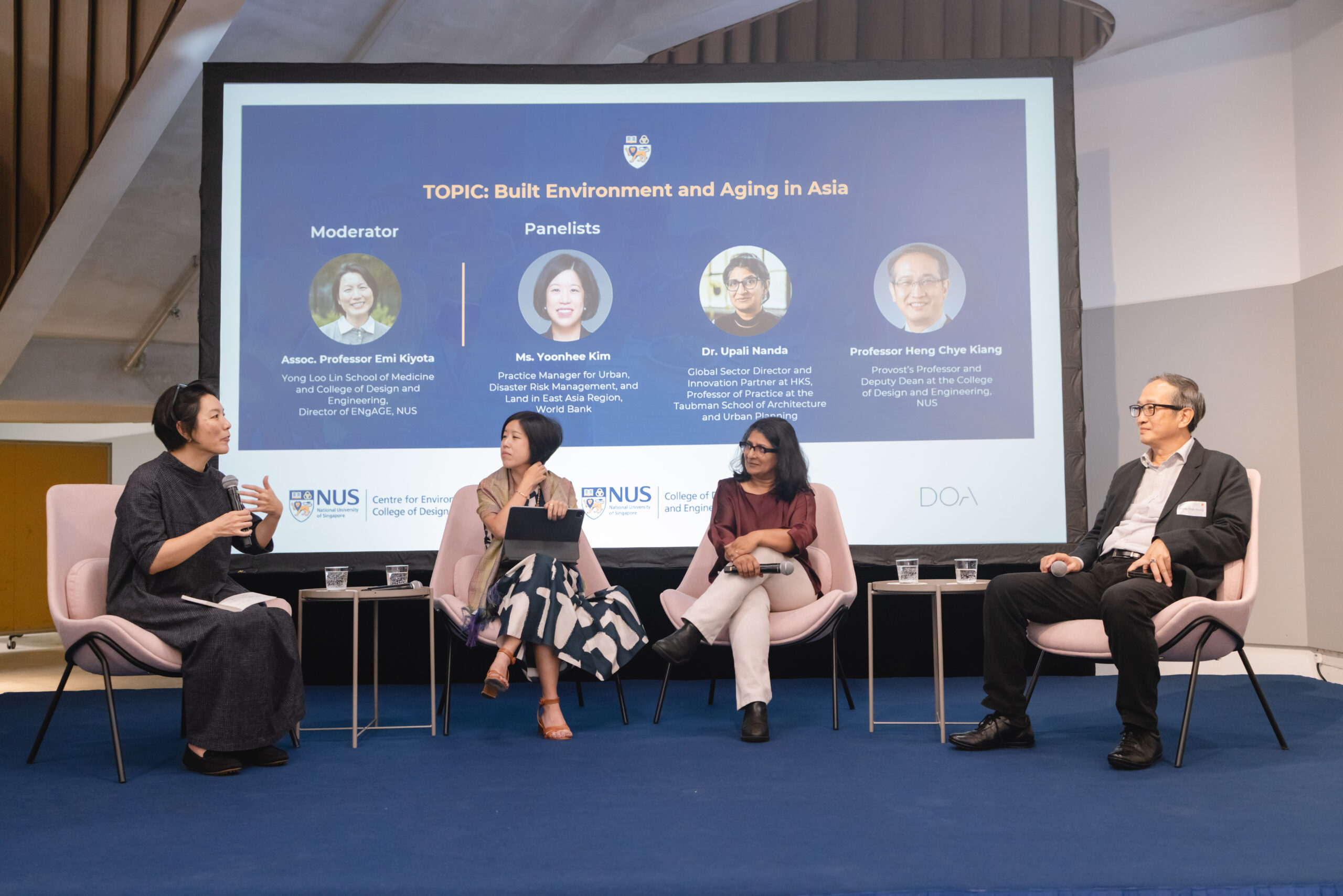
She added, “The opportunity is in designing communities where different people with different needs and cultures can find common ground because we cannot completely translate everything to a common language... The idea that I don’t go somewhere because I don’t understand the language is a huge cultural challenge and design opportunity – how do you create space where it doesn’t matter that you speak different languages and yet still feel equally included.” The answer, as she posits from a purely design lens, lies in the use of “space, colour and visuals – ‘languages’ that are beyond words.” By combining creativity and their knowledge of design principles, designers can design for social good to create meaningful solutions that can help develop more cohesive communities by bringing people together to work on a common goal.
Community Engagement
Another interesting point that was brought up was that despite the different regulations or cultures across countries, the basic needs of the seniors remain fundamentally similar. Assoc Prof Kiyota noted, "…coming back to very basic commonality on what humans do is quite important... such as having a space that people can have a sense of ownership." Dr Nanda added that other factors such as “…food, exercise, nature and art... they don’t need a lot of translation for people to come together to get exposure and incentive to include (seniors).”
The best way to understand the community's challenges and opportunities is to go beyond the campus walls and engage with those on the ground. As seniors are increasingly recognised as contributors to development, they are better positioned to act and advocate for themselves.
Fuelled by their commitment to involve seniors in the research process, ENgAGE can ensure that their work aligns with the needs and priorities of the community they serve. This also presents a wealth of opportunities to gather input on areas such as post-retirement financial security, innovative living arrangements, integrated health and social care, and other areas that contribute to the holistic well-being of seniors.
In his opening speech, Prof Heng addressed the community members and stressed their importance in contributing to ENgAGE’s research, stating that “…your experiences bring a vital human element to our research. Your input helps us better understand how to address pressing issues such as climate change and ageing effectively.”
The presence of community members at the launch event is a testament to the way ENgAGE approaches its research. The Centre firmly believes that its research should not just be confined to paper—it should extend to real-world applications that can make a difference within the local community and beyond to help influence policies, inform practice, and inspire change.
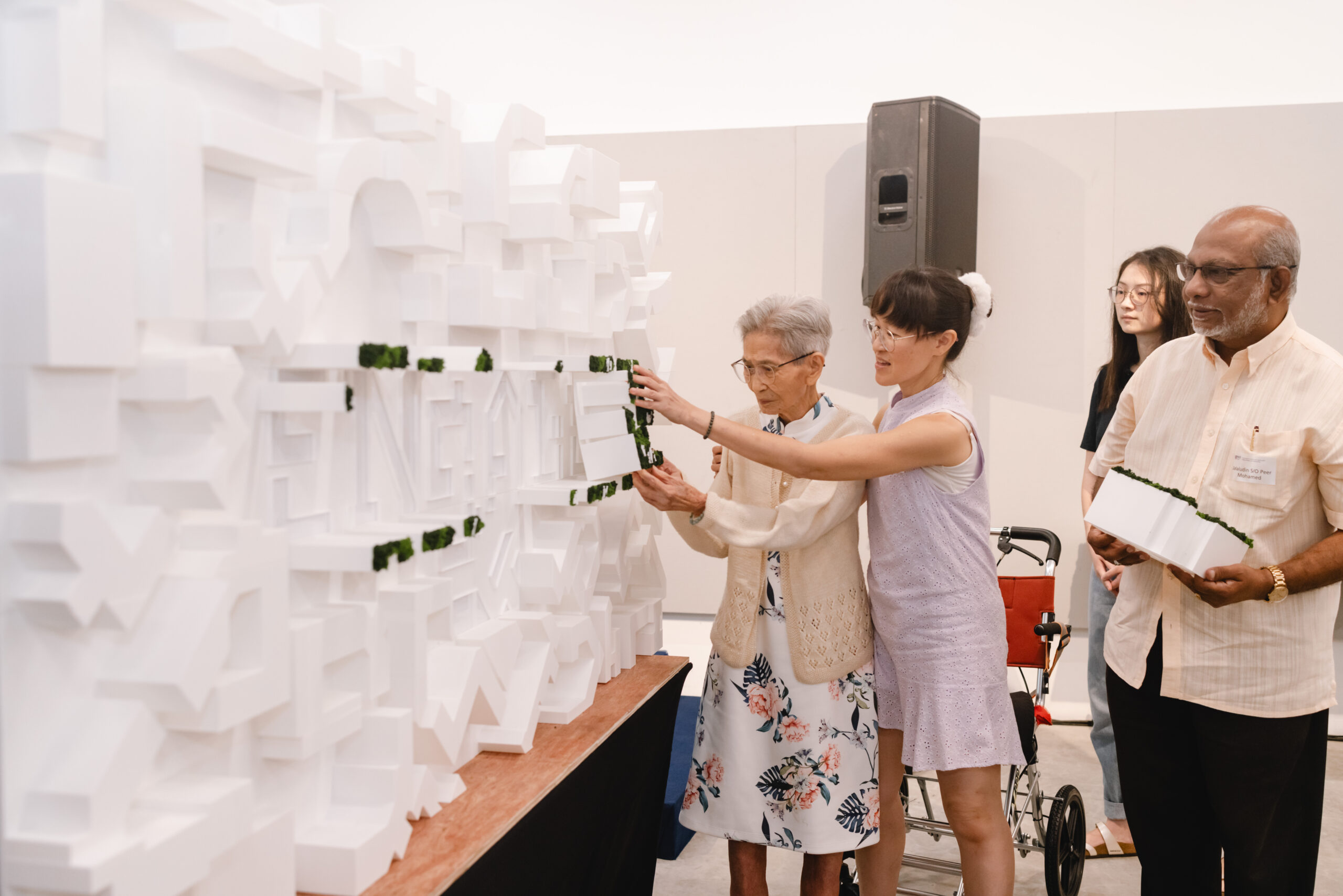
Looking inward to move forward
The ENgAGE team hopes to elevate themselves towards being a think-tank in the coming decade to make a difference in communities across Asia. In his closing remarks, Associate Professor Fung John Chye, Co-Director at ENgAGE, emphasised the need to cultivate wisdom beyond the immediate generation of knowledge from current projects. He added, “We would need a broad range of human talents to dissect the diverse interrelated problems of ageing, as well as integrate various interdisciplinary and multi-stakeholder collaborations.”
Apart from being outward-looking, the real challenge lies in looking inward to consistently find ways to do better. As Assoc Prof Fung mentioned, “We would need an open mind and sandbox culture to be constantly self-critical of our assumptions and be bold in envisioning new imaginations.”



